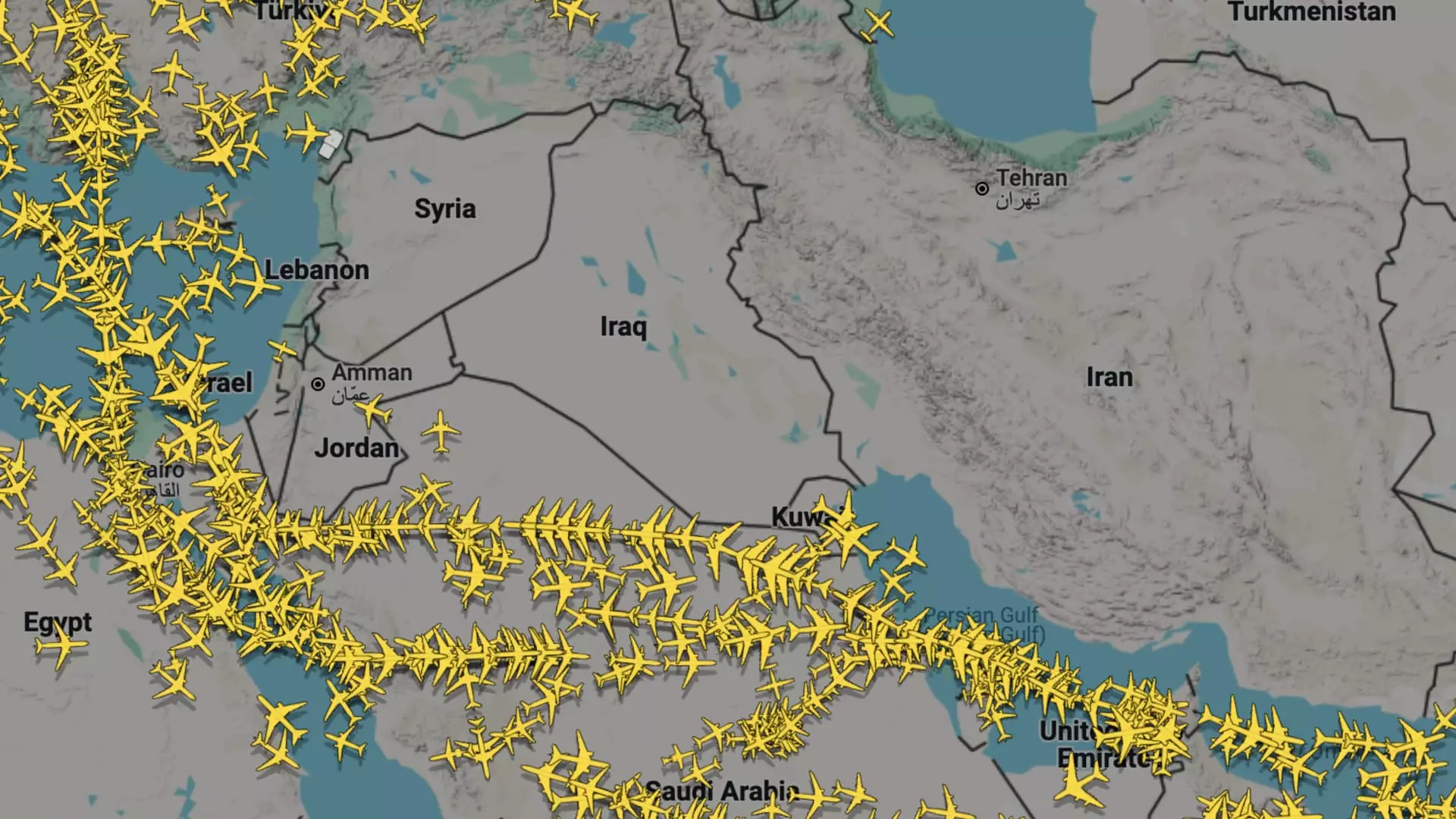In a striking display of geopolitical tit-for-tat, recent events have unfolded to cataclysmic proportions for the airline industry. Following Israel’s missile strike on Iran, the ripple effects resulted in a bevy of canceled flights as major carriers such as Delta Air Lines and United Airlines hastily withdrew their services to Tel Aviv. This wasn’t merely an isolated decision; it acted as a barometer of the rising tensions within a complex web of international relationships that define the Middle East. The airlines, tasked with global connectivity, now find themselves dodging not just storms in the sky but tumultuous political climates that threaten their very operations.
The Ripple Effect on Passengers
The implications for passengers are staggering. Stranded between the allure of travel and the harsh reality of instability, individuals facing sudden flight cancellations find themselves at the mercy of airline policies that are often as convoluted as the geopolitical landscape itself. Customers traveling to Israel received notices from El Al Airlines stating that all flights had been suspended indefinitely, tying them to schedules governed by security issues rather than their personal itineraries. This entrapment reflects a broader issue that has long plagued global travel: the airlines’ often impersonal responses to crises, which exacerbate an already stressful situation for travelers.
Escalating Military Tensions and Its Economic Fallout
As airlines reevaluate their flight paths, recalibrating routes to skirt conflict zones, one cannot help but consider the economic consequences entwined with these decisions. The message sent by suspending operations isn’t merely cautionary; it signals to the world that conflict has direct implications for commerce and tourism. When a major airline such as Lufthansa halts service indefinitely, businesses reliant on travel flounder, and local economies face the inevitable downturn that accompanies decreased tourism. Travel vouchers and waived change fees might provide temporary relief, but what happens when travelers permanently alter their perceptions of safety and accessibility to volatile regions?
Reassessing Airline Responsibilities
In light of these developments, we must ask: what is the responsibility of airlines in times of political instability? Air travel is often heralded as an engine of globalization; however, it raises ethical questions when the realities of international conflict halt global movement. Airlines could pivot from mere profit-driven enterprises to proactive stewards of customer safety, engaging in deeper dialogue with government authorities and investing in better crisis management strategies. Passengers should not only be treated as commodities but as individuals whose travel dreams can shatter within a moment’s notice.
A Clarion Call for Center-Wing Liberals
For those of us with center-wing liberal ideals, the unfolding drama in the skies serves as a call to action. We must advocate not only for our rights as travelers but also push for responsible governance that prioritizes diplomatic solutions over military action. In a world where individuals are increasingly interconnected, our voices must demand accountability from both airlines and governments. Flight disruptions are no longer just operational inconveniences; they are symbolic of naked political realities that transcend borders. It’s time for all of us to reconsider what we truly value in an increasingly unpredictable world.


Leave a Reply